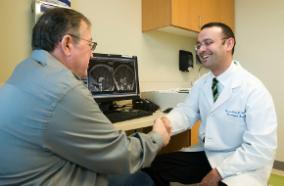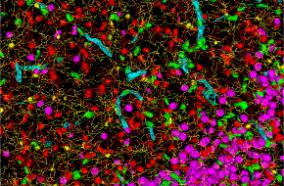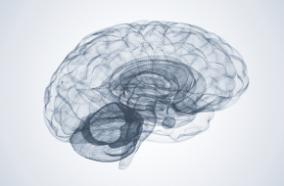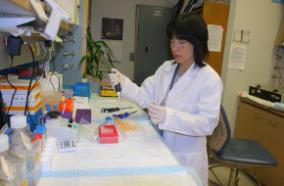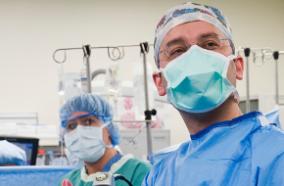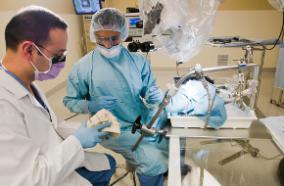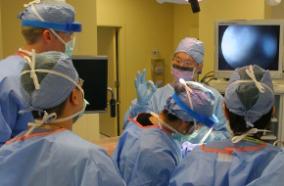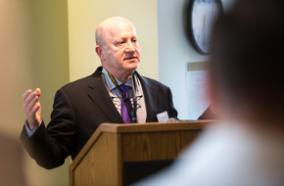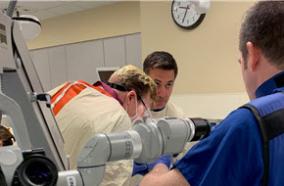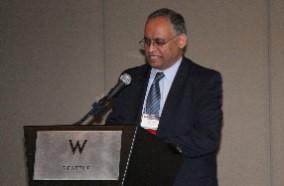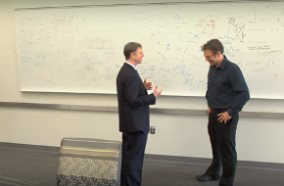
Dr. Michael Williams is director of Adult and Transitional Hydrocephalus and CSF Disorders. He is a UW professor of neurology and neurological surgery, and an expert in idiopathic normal pressure hydrocephalus (iNPH), hydrocephalus in young and middle-aged adults, hydrocephalus in young adults making the transition from pediatric specialists to adult specialists, and in pseudotumor cerebri, also known as idiopathic intracranial hypertension.
Dr. Williams received a bachelor's degree from Valparaiso University, and his M.D. from Indiana University School of Medicine in Indianapolis. He had an internship at Methodist Hospital of Indiana, and trained in neurology at Indiana University Medical Center. He then had a fellowship in neurosciences critical care at Johns Hopkins Hospital.
Dr. Williams has been an expert in the field of hydrocephalus and CSF disorders for over 30 years. He first developed his expertise in the management of acute hydrocephalus in patients in the NeuroICU, and then began to use the same diagnostic and treatment methods for patients with chronic forms of hydrocephalus. He established adult hydrocephalus centers at Johns Hopkins Hospital and at Sinai Hospital of Baltimore before coming to the University of Washington in 2016.
Dr. Williams is board certified in adult neurology, and is a member of the American Academy of Neurology and the American Neurological Association. He helped to create the International Society for Hydrocephalus and CSF Disorders and is a past president of the society. He was co-chair of the first NIH workshop on hydrocephalus in 2005. He is a founding member of the Adult Hydrocephalus Clinical Research Network. He has long been active in patient advocacy with the Hydrocephalus Association, and is currently a member of its Board of Directors and Chair of its Medical Advisory Board.
Clinical care and research in idiopathic normal pressure hydrocephalus (iNPH); young adults with hydrocephalus from childhood who are making the transition from pediatric to adult specialists (transitional care); hydrocephalus in young and middle-aged adults; pseudotumor cerebri, also known as idiopathic intracranial hypertension (IIH); management of these disorders with shunt systems, as well as with other established interventions, such as endoscopic third ventriculostomy (ETV) for patients with some forms of hydrocephalus, or vascular stent insertion for some patients with pseudotumor cerebri.
Research in the longitudinal care and outcomes of congenital hydrocephalus, idiopathic normal pressure hydrocephalus, and acquired hydrocephalus; research in novel diagnostic and treatment approaches for hydrocephalus and pseudotumor cerebri, including noninvasive intracranial pressure monitoring. Dr. Williams also conducts NASA funded research in SANS (Spaceflight Associated Neuro-ocular Syndrome), which is a disorder affecting astronauts after long-duration spaceflight.
I enjoy traveling, amateur photography and weekend bicycling.
Medical Education
Indiana University School of Medicine
Internship
IU Health Methodist Hospital of Indiana
Residency
Indiana University School of Medicine
Fellowship
Johns Hopkins Hospital
Harborview Medical Center Neurological Surgery Clinic:
Phone: 206-744-9300
Fax: 206-744-9915

